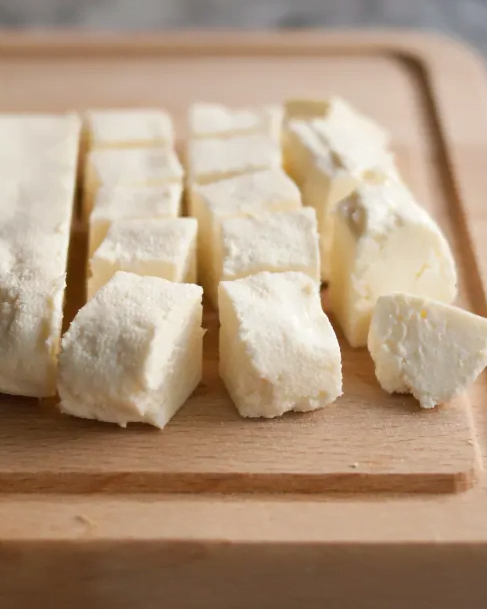Paneer Adulteration:

By Prerna Sethi
Have you ever bought food that looks contaminated or becomes stale even before its expiry date? Did you do something to correct it? Are you aware of what you might be consuming? Well, all your answers are here. Increased food demand and a rapidly growing population propose certain actions that might not work in the direction of consumer health. Food adulteration is one of those many problems that people are facing for a long time now. Since, food is the basic necessity of life therefore steps and measures must be taken to prevent ill effects to the consumers.

Food adulteration, in simple words, refers to the degradation of food quality in order to obtain economical and technical benefits by food business operators (FBOs). It could be done by either addition of a debasing substance or by removal of a nutrient one from the food product. In both cases, consumer health is compromised. For a detailed definition, an adulterant is very well defined in the FSS Act, 2006.
Many food products being adulterated include spices like turmeric and red chili powder, dairy products like milk, ghee, paneer, sugar, and beverages to name a few. Dairy products play a significant role in our daily diet, hence it is necessary to ensure the quality of the product we consume.
Paneer is a cottage cheese mainly used as a meat substitute for vegetarians. Paneer is made from either cow or buffalo curdled milk Paneer adulteration has been done for a long time now as it is considered to be a very common yet harmful practice to meet the increasing consumer demand for dairy products. The consequences of such practice are, for sure, consumer health. During the marriage or festive season in India, the demand for paneer per day increases, and no one purchases branded paneer on such occasions. Most paneer comes from milk vendors or sweet shops, where there is no one to monitor the quality of paneer produced.
In fact, it is also known that more than 20 percent of patients who visit a doctor or any clinic or hospital are those who had consumed such adulterated food and food products. Some of the cases that caught in the eye of Indian officials have been mentioned in the further part of this article.
Cases In India:

Recently, at a raid conducted by the Food and Drug Administration (FDA) at a local dairy farm at Manjari Khurd, Pune, 900kg of adulterated Paneer was seized. The dairy owner used 550kg of skimmed milk powder and 30kg palm oil for making spurious paneer. The image shown depicts the seizure of paneer worth Rs.4lakh by the officials.
It was also found that the factory was illegal and only operated to prepare adulterated paneer. Paneer is usually adulterated by various chemicals including detergents and dyes, bicarbonates, and acids like sulphuric acid.
Since festivals play a great part of religious practices in India, they also play as a very common time for food adulteration. Some of these cases include:
Out of 13 samples of paneer, 5failed the tests conducted by UT health department. The adulterants used in paneer include water, detergents, and urea among others. The health department mentioned to use mobile laboratory network to increase consumer awareness.
FDA, Nashik officials issued a series of guidelines, after a raid for suspected paneer adulteration at two manufacturing units, for safe and hygienic food to consumers during the festive season.
A manufacturing unit in Ambad was raided under the guidance of assistant commissioner (food).FDA authorities released a statement that the concerned unit did not have the permit to run as per legal guidelines.

Another example include the seizure of 2,131kg of paneer from Dairy Punjab in Chembur by FDA and the CB Control of the Economic Offences Wing (EOW) earlier this year. Later, police complaint was filed against them. The product was supplied from the factories of Badlapur and Bhiwandi where the owners were remanded in police custody for five days. In some cases it was also adulterated by including refined flour (Maida) in its preparation.
It might not be possible to stop these incidents all in once however we, as consumers, could be more cautious before buying these food products. Before opting for cautious measures, it is necessary to be aware of the type of adulterants used for the preparation of paneer.

How to be cautious?

Besides these measures, you can always ensure purity of paneer before consumption at the household level.
How to check the purity of Paneer?
Dairy products like paneer serves as a major protein source, especially in the vegetarian diet. Some of the simple steps could be followed to ensure purity of paneer at household level.
Actions to be taken
At first place, food must not be adulterated or mixed with certain substances making its quality degradable. Even if you come across an adulterated product, legal actions must and have been taken by the government organizations in past, and hopefully will continue to do so in future. It is rightly said that ‘Our safety is in our hands’ and it’s time to prove this statement true.
Therefore, apart from the household measures being mentioned above certain other actions that a consumer may take after being exposed to an adulterated food product includes:

Further, in order to assess the value of food product and provide consumer protection from fraudulent practices, authentic testing of food and adulterant detection of various food products are required. The development of numerous approaches, including physical, biochemical/immunological and molecular techniques, for adulterant detection in food has been made possible by concern towards food safety and regulation.